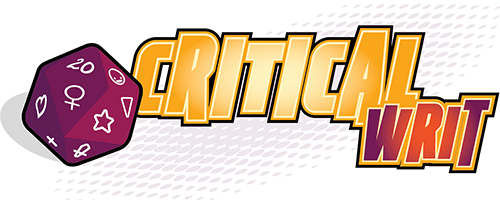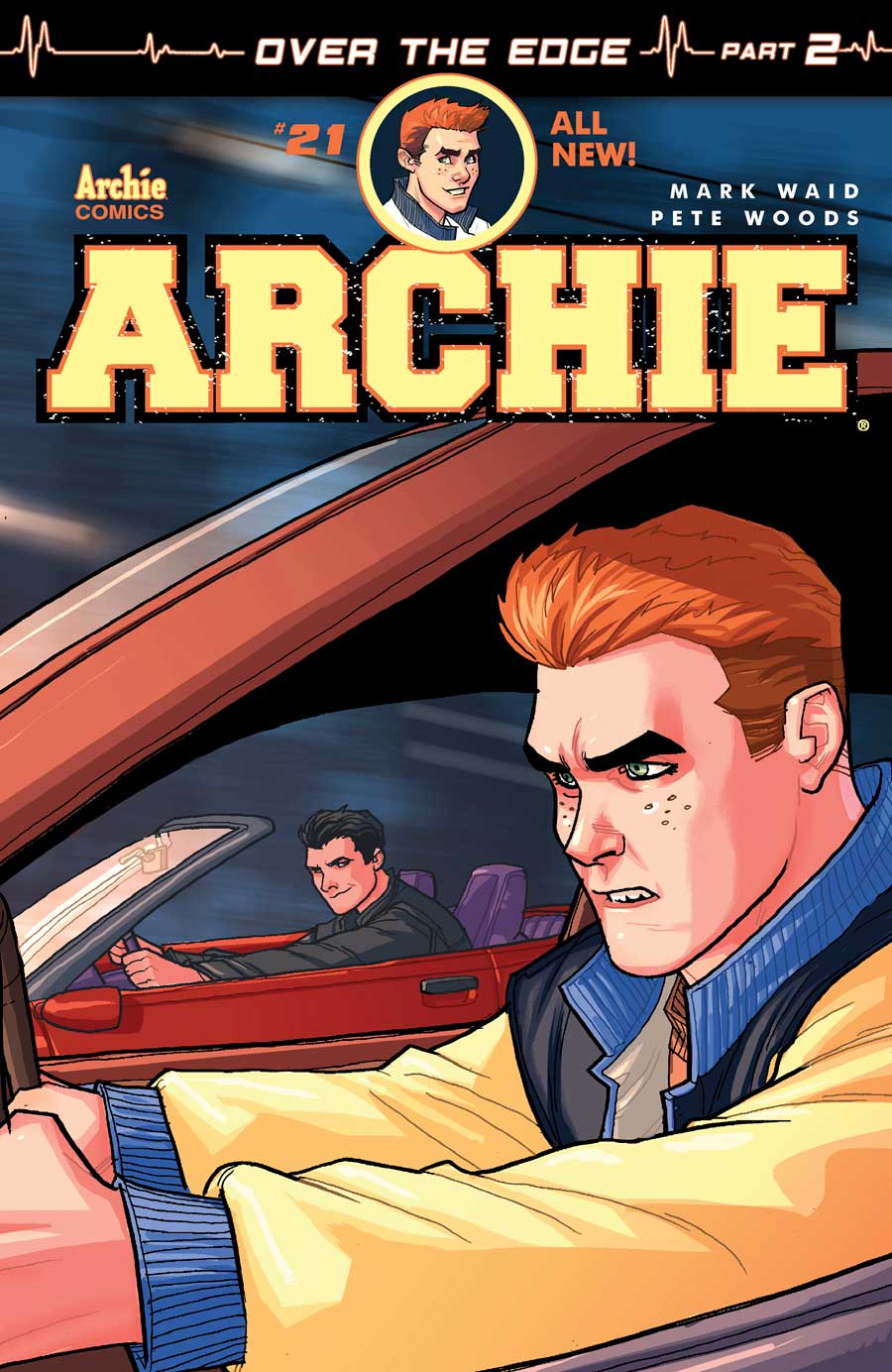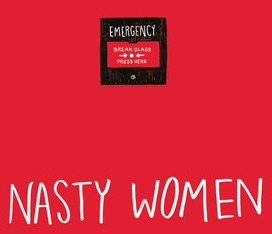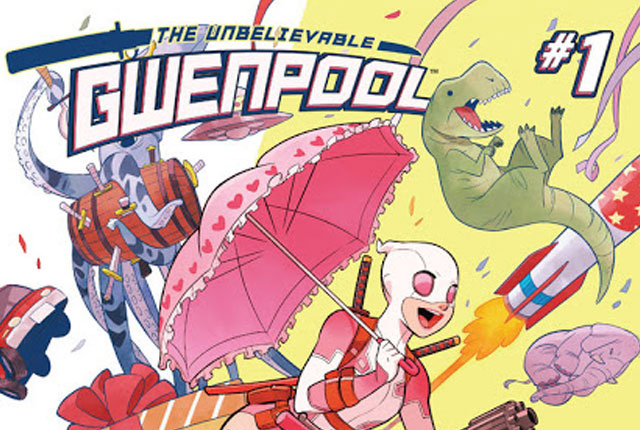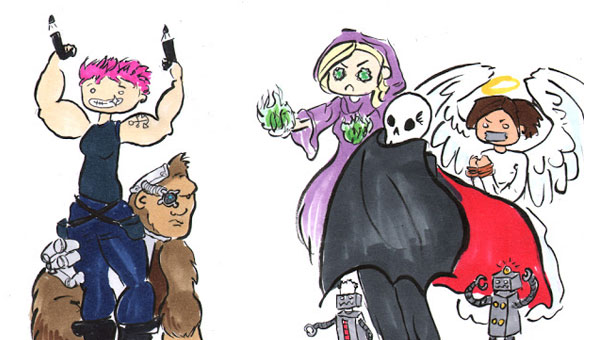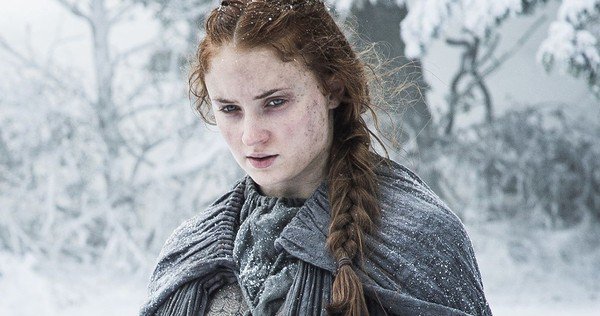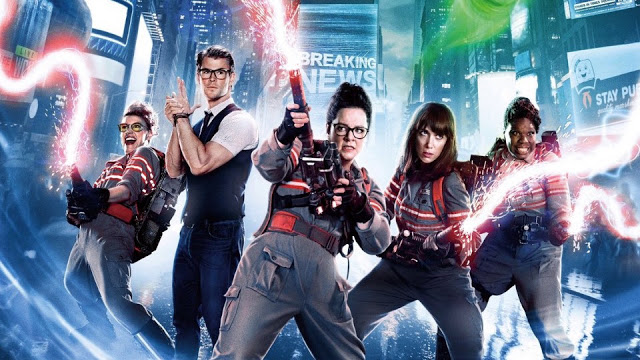Despite being one of the three most important characters in the DC universe, it's taken Wonder Woman an inordinate amount of time to get a movie adaptation worthy of her. Until now, the only adaptations of the Amazon Princess's adventures were the Lynda Carter-starring 1970s TV show and the 2009 animated movie. Otherwise, the character was generally either part of an ensemble or worse, given a side role. It felt like Wonder Woman will never get the chance to shine her fellow Trinity members Batman and Superman got. Even the announcement that WB is making one that'll be a part of their cinematic universe didn't inspire confidence, especially due to the controversial nature of the DCEU, influenced by the general depressing tone and quality of already released films.
But all our fears turned out to be unfounded, as Patty Jenkins's
Wonder Woman turned out as well as it did, gaining outstanding critical acclaim and love from fans both old and new —
breaking box office records all over the world. After this undeniable success, the future of female-led superhero movies is looking brighter than ever.
Naturally, we here at
Critical Writ have our own thoughts about
Wonder Woman. We've already released our
review of the movie, written by our own Elessar and now it's time for our other members to discuss how the film affected them.
Warning: We do discuss spoilers below!
Let's begin by sharing our personal history with the character. Are you a new-fangled fan, or were you already very familiar with Wonder Woman?
Tova: I’m very new to Wonder Woman. I borrowed the
Sensation Comics anthology with Wonder Women stories from the library just before the movie premiered and had read some of that, and I read the first volume of
DC Bombshells, but that’s the only experience I have with the character outside of hearing and reading about her. I’ve also frequently used the GIF of
Lynda Carter smashing the patriarchy, of course.
Adrian: I’m very familiar with the comics and animated stories! I’m a fan of Greg Rucka’s various runs, Gail Simone is my hero, but the
Justice League cartoon stands out as having the most on-point Wonder Woman. Susan Eisenberg’s voice work epitomizes Diana much like Kevin Conroy is the definitive voice of Batman. I love Diana so much that once aspiring to write a Wonder Woman screenplay served as a catalyst for growing my creative writing skills.
Rosario: I am very familiar with the character, insofar as “half-remembered fragments of Lynda Carter’s show” and being a long-time fan of the DCAU. Even now, getting comics in my country is a tall order, so I never got into them. But Diana was always one of my favorite heroes. My love of all things mythological just cemented my love for her.
Megan: I’ve been reading
Wonder Woman now for almost ten years; it was Gail Simone’s
The Circle that really made me a fan. I wanted to get into her earlier, but I always thought her costume (the one with the star spangled panties) was utterly ridiculous. Terry Dodson drew her to make her look so powerful, so it was when I saw the cover for
The Circle that I felt I could really get over that. Ever since, I felt like DC had the greatest superhero ever on their hands that they just weren’t promoting well. If you’re a longtime Wonder Woman fan, it’s the same as being a long suffering Wonder Woman fan.
Ivonne: I’m pretty new to Wondie. I mean I know Lynda Carter’s
Wonder Woman, and that’s about it. I never read the comic books before last year, and I’ve only read a smidgen of stuff since. Mostly, everything I know about Wondie I know from the DC animated movies/series, and word of mouth.
What are your overall feelings on the movie?
Adrian: Relief. It’s been a rough five years or so for DC fans. The comics went through a contentious period with the New 52 and the DCCU has been struggling to find its footing. It had grown hard to imagine that DC fans would ever “get to have nice things.” Patty Jenkins delivered a fun,
tonally-accurate, and explosive adventure. I feel, for once, hope for the DCCU.
Tova: I’ll answer this question in a very literal way: Many and intense! There’s a lot of joy simply in seeing a badass heroine at the centre of a story, but when empathy is one of the central characteristics of that heroine, that joy turns much stronger and bigger. Perhaps the sadness in the movie was also heightened as a result, because I felt that more intensely than usual with epic adventure movies as well. And a strange kind of protective love for mankind that most of the type of humans and human actions we see in this story really shouldn’t inspire but which Wonder Woman is full of. It was definitely an inspiring movie. I’m aware I’ve likely ignored many issues with the plot because of all these emotions and the awe it made me feel, but that seems like minor details when a movie gives you this kind of experience.
Rosario: I agree with Tova, I am probably being more forgiving of the film due to the sheer excitement of seeing Diana in the big screen. Do understand, that for me has been a really, really long time. The other DC animated film about her I keep hearing about? I don’t even think it’s dubbed, there are no DVDs of it being sold here, it hasn’t been aired so far as I know… It has been a really, really long time. The hype has been so real here, with people going multiple times to the cinema for Wonder Woman. This is not something we do here. When I sat in the cinema and saw Themyscira for the first time it felt—wow.
Megan: Like Adrian, relief. You’ve come a long way, Diana. I’m so happy that not only did she get her first big budget film, and not only is it a critical darling and box office success—it is a movie that is in love with Wonder Woman and everything she represents. Despite the changes from the comic, the movie gets to the heart of what makes her so damn lovable. I feel vindicated, and I am so happy that millions of people now have a chance to love her too!
Ivonne: Relieved that it didn’t suck! This was the one movie DC needed to get right, and they did, apparently more by accident and lack of care, than by design (they gave Jenkins pretty free reign, and seemed quite surprised by the success of the film). I’m a Marvel fangurl first and foremost, but I needed WW to do well, for the express reason of kicking Marvel in the ass so they start acknowledging their female fans… and so that they don’t screw up Captain Marvel. As for
Wonder Woman itself, I loved it. It was inspiring, visually beautiful, and one of the only movies I’ve seen come out of Hollywood that wasn’t male-gazey. It was, in a word, wonderful.
How did you find the plot? What do you think about the the movie's version of Diana's origin?
Adrian: I feel great affection for the clay baby origin, but the New 52 ret-con establishing Diana as Zeus’ daughter opened up a whole new, exciting wing of her family tree that was previously non-existent. So much potential here! And yet, it seems they scuttled all those possibilities in the few minutes of
Wonder Woman, establishing that the entire pantheon of gods were eliminated in Zeus and Ares’ great conflict. The plot perfectly serves Diana’s character growth and while I’m thankful for that, I mourn what could have been, and hope for a return of the gods in sequel.
Rosario: I am extremely ignorant of the comics. I know the broad strokes, and with all the controversy the New-52 retcon drudged up it was all but impossible for me to ignore, so… This is the first time for me encountering Diana’s origin, so I am… blasé, maybe? It’s a good story as any. It is suitably mythological for me because of the incestuous undertones: The Amazons were created by Zeus, so kind of like his daughters, then Zeus and Hippolyta had a clay baby. To me it was more important how the film emphasized how it was the Amazonian society that gave Diana her morals, and how it was Antiope’s and Hippolyta's love what shaped her into the woman who became a heroine.
Tova: I really liked the idea that Diana doesn't have a father, even in the biological sense, but only a mother. Her entire history and heritage being female is just so appealing to me, especially considering no one ever suggests there's something missing there — her family and childhood is whole and full. Like Rosario says, the film still emphasizes the women around Diana, and it's clear they're the ones who shaped her. But you don't go "By the way, you were told a lie about your origin and Zeus is actually your father" and then not examine what that means for the character. I'm not looking forward to that examination (sorry!).
Megan: The plot, overall, is fairly in line with what we’ve seen before in the comics. Unfortunately, the goddesses involved in her creation are gone, boo. But it’s not the New 52 origin, which I was dreading. The clay baby origin is always my favourite, and while there was a quick line that suggested that wasn’t true, that person wasn’t under the sway of the lasso yet, I don’t think, and so I’m choosing to ignore it. I just wish there was a cinematic of the clay baby coming to life and the Amazons crowding around the one child they ever had, or that they included that they were reincarnated from abused women.
Ivonne: I’m not a fan of all the goddesses having been killed, but I don’t mind Diana having a father. Although, not going to lie, when it was revealed that he had sired Diana on Hippolyta, my immediate thought was to wonder what animal he turned her into to rape her, since Zeus is kind of known for that. I know, pretty awful, but there you have it. Zeus was very… clean in this version of Greek mythology. But I guess he’s dead, so whatever. I’m fine with not having him present in her life.
How did you feel Gal Gadot fared in the role?
Tova: Great! She has such an expressive face, and I love how you get to see the outside world reflected through her eyes when you watch her watch it. Like when Diana first encounters soldiers wounded in the war, or the people in the French village they reach after going through No Man’s Land. I’m ashamed to admit it, but I’ve grown somewhat immune to similar scenes showing war after so many movies have used them, and they don’t pack the same emotional punch anymore. But thanks to Gadot’s acting (and probably the writing and directing as well) these scenes do work, and it makes the whole story more engaging, as it gives us great insight into Diana’s motivations in her quest to end the war. Then she puts on her warrior face, and the determination behind Gadot’s eyes is just as convincing as the compassion.
Adrian: I’ve been a fan of Gal since her work in the
Fast & Furious franchise. Gisele and Han OTP! I think she did a good job in accurately expressing Diana’s warmth, determination, conviction, and purity of heart. I don’t feel like Gal’s talent as an actress has grown much past her days in
Fast, but I think I’m in the minority on that assessment: after all, she did make millions of people cry!
Rosario: She pulls off the naïvety so well. I don’t remember much of her prior work, thus, I cannot comment on that, but when she runs up, excited at seeing a baby, when she was eating the ice cream and thanked profusely the vendor… Gadot was amazing. The way Diana marveled at her own power was also very good acting. She was occasionally weak when she had to be more serious, but maybe that could be interpreted as Diana being somewhat confused at the stupid morality of Man’s World, so I don’t give much weight to it.
Megan: Fantastic. There were a few lines I thought were clunky, particularly the narration at the beginning and at the end, but it could have just been how it was written. Those were my only gripes, and I quickly forgot it once the film got going. When she was cast I was disappointed that they didn’t go with an actress who was more muscular; yes, I was one of those people! And I will admit I was wrong. Gadot looked powerful and strong. I totally believed she could lift a tank like it was nothing.
Ivonne: Back when Gadot was introduced, I wasn’t sure I liked her. And on a political level, I don’t, because her politics regarding Palestine is typically Israeli. That said, and setting dubious politics aside, I thought Gadot was fabulous in this role. She really owned it, she seemed to revel in it, she looked gorgeous and powerful. She was so expressive in her wonder when Diana is first running around London, and yet she never comes off as naive or stupid. Gadot ended up being perfect for the role despite my initial misgivings.
What are your thoughts on the film's supporting cast - the characters adapted from comics (Steve, Etta) and the original ones (Sameer, Charlie and Chief)?
Adrian: Etta was exceptional; we need more of her. In the past, Steve has pointedly been Diana’s damsel in distress, but in the film they succeeded in making him more than a mere love interest, but a friend and an inspiration. Diana deserves no less. I really enjoyed the original characters, but much like Etta, I’m saddened that we can’t expect to see more of them.
Rosario: Steve was so charming, I truly hurt for Diana when That Scene happened. Because of how much the trailers featured Etta, I was disappointed that we didn’t get more of her in the film, so I hope there is a director’s cut or extra scenes or something when we can appreciate more of her, as well as have more of the trio. Overall, I thought the supporting cast was great, especially their interactions with Diana. My favorite was Chief, mainly due to the potential of his character. In a universe where the gods existed, could it be really that he is a demigod? I sure hope so! I hope he appears in more films! Also, I liked how the Soldier Trio represented something about war. Sameer is the person with no other hope than to join the war, Charlie is the soldier who struggles to try to make something of himself in a war he doesn't know what it stands for anymore and that has damaged him, and Chief is the one so hurt by conflict that he is just numb to further conflict. That’s what they are until Diana comes along.
Megan: I love Etta! More of her please! If her sequel is modern day, can she have been reincarnated? Same actress in the role of Smetta Smandy? Steve was great. The animated movie kind of poisoned his character for me (he’s a chauvinist pig in that one), and Chris Pine is kind of a similar character in the first Star Trek film so I was anticipating something similar. But Pine did a fantastic job and I really loved him in the end. Sameer, Charlier and Chief were great; I really love that the film didn’t shy away from the fact that this was a war of colonial powers that brought men of colour from around the world to fight in a war they had no real stake in. I also hope the theory that Chief is a demigod himself is true, I’d love to see him in the sequel.
Ivonne: Chris Pine was another surprise for me (along with Gadot). I thought he did a fabulous Steve Trevor. He was never over-bearing, despite probably thinking Diana was a little bit crazy, and ultimately he proved himself to be respectful of her and her power. I was pleased at how well Chris Pine, a leading man normally, seemed to naturally take to the role of supporting actor to Gadot. As for the Howling Commandos Lite, they were pretty good. If I have any complaints, is that we maybe didn’t get enough of them. They grounded Diana, humanized the faces of this terrible war, and they did it well.
Tova: I don’t think there’s much to add here! I always like a good ragtag team of misfits, and then one here did not disappoint. Like the others have said, I would have liked to see more of them, and more of Etta Candy, so I’m a little sad the sequel will take place in the present.
I’ll also miss Steve, who really was a pleasant surprise.
What are your thoughts on how the movie handled its human and supernatural villains?
Adrian: Dr. Poison was very intriguing, another character who I desperately want to know and see more of. Ludendorff and Ares were a bit two-dimensional, but I felt like Dr. Poison could carry a whole film. Could we get extras and vignettes like they did for the MCU? Ares serving as a violent muse to mankind has some interesting tendrils to explore, but ultimately it seemed to diminish the depth of the human villains.
Rosario: We definitely need to see more of Dr. Poison.
Elena Anaya’s interview with The Verge uncovers so much I am thirsty. And I didn’t even know it! That said, while I agree that Ludendorff and Ares need to be explored more, I think I may be one of the only people who disagree with the assessment that the film did not serve itself by having Ludendorff and Ares be stereotypical villains. I actually liked that Ludendorff was like a human version of Ares. It really set up that Man is the best (as reflected by Steve and Etta) and the worst.
Tova: I think it was necessary to have human villains, for the reason Rosario describes, to show personifications of the worst as well as the best of humankind. I do not agree about Dr. Poison. To my, admittedly limited, understanding of the DC world of heroes and villains, one of its biggest issues is that villainy there very often comes from mental illness. It’s so full of mentally unstable villains that an
asylum for the “criminally insane” is one of the main locations of DC stories, and a large share of Batman’s enemies have been patients there. Along with that there’s also the more widespread trope where disfigurement or disability (the two often being intermixed in pop culture) either serves as a sign of evil or itself leads to evil.
One of the clearest examples might be Two-Face, who is driven insane and adopts his villainous persona after being severely scarred on one side of the face, and is often portrayed as suffering from schizophrenia, bipolar disorder and/or dissociative identity disorder.
With this in mind, to have a villain who is obsessive, sadistic and “a maniac”, and whose “hideous” facial scars are described as proof of her sadistic side (all descriptions from the Anaya interview) seems to me to reinforce all those harmful tropes. I think Dr. Poison is a step up from characters like Two-Face, but then, why use that category of storytelling device at all? There are so many better options out there.
Megan: The villains just weren’t developed well, but I think that was okay for the story they were trying to tell. It wasn’t really about who the big bad was, because the real danger is the potential for evil that is in every human. That said, what I like about Wonder Woman comics is that she really gets to the heart of her villains and often wins them over to her side. Part of me wishes we saw that with Dr Poison, the last big fight could have been cut down and we could have had some resolution between them. On the other hand, an unrepentant female villain is so rare, outside the femme fatale trope. She’s scarred, she’s mean, she’s not sorry, and she’s not not going to fall for a pretty face, Steve.
Ivonne: I really wanted more of Dr. Poison. I felt like there was a great deal of development left at the table with her. But she was convincingly evil, and I was glad she didn’t fall for Steve’s shenanigans at the party. The actress needed more room to shine, because honestly, she was fabulous.
I thought the use of Ludendorff was a strange choice, seeing as he is an actual historical figure from WW1 that survives that war to get somewhat involved with Hitler prior to WW2. Making the choice to kill him was odd, to say the least. They could have called that character anything, made up a name of a fictional general, so why use a real historical figure? Add to that, I guarantee that most American audiences don’t know the name. It’s not that he’s obscure--he’s not--but American history courses are woefully short when it comes to anything before WW2. European audiences probably knew Ludendorff quite well, though, and especially his history.
Ares was… okay. The final battle was all kinds of cool CGI, but it was weird to see Professor Lupin as the god of war. For all that Ares was the boogeyman that Diana chased the entire movie, he wasn’t particularly frightening. That said, I will give kudos to the fact that I never saw it coming that this particular character was Ares. Normally superhero films are fairly predictable, so it was nice to be surprised that way.
What did you think about the movie’s use of the World War I setting, as opposed to WW2, more traditionally connected to Wonder Woman’s origin?
Rosario: I thought it was brilliant, actually. It’s one of the best settings to learn about the murky world we live in, at least for an Amazon warrior. The War is one of the murkiest conflicts ever. The War was arguably started by the Black Hand, an extremist Serbian separatist group, when Gavrilo Princip killed Archduke Ferdinand. It is a prime example of a “your terrorist are our freedom fighters” scenario. The whole thing was magnified by allies dragging each other into war, treaties falling apart all over the place—just look at how the Kingdom of Italy went from the Allied side to the Triple Entente side. It’s really tragic as well how it strips away Diana’s conviction that we are so inherently good. Yet, she chose chose to fight that final battle, anyway. Had I not known from hearsay her comics’ origin is in World War II, I would never have guessed, since The Great War feels so thematically appropriate for Wonder Woman.
Tova: This is where I have to admit I thought the movie took place during WWII all through watching it. Quite embarrassing, but also regrettable for the dimension clearly lost on me because I wasn’t aware of the context! I love Rosario’s analysis here, and in hindsight it truly does enhance the themes of human nature of good and evil and, especially, the grey area in between.
Adrian: There's a lot of thematic symmetry between Diana's first experiences with Man's World and mankind itself coming to grips with the new horrors of modern warfare, so I think the setting world worked beautifully. One of the trailers that ran before
Wonder Woman was
Dunkirk, the story of a massive rescue operation to save Allied soldiers from the Germans in WWII. A rescued soldier, fearing for his own life, balks at prospect of returning to Dunkirk to save more lives, when the ship’s captain tells him "There's no hiding from this, son. We have a job to do." It's that same call to duty that soldiers faced in WWI, and in a way that had never been experienced before. You won't have trouble finding exceptionally bloody episodes throughout history, but the first World War set a gruesome new standard in suffering, appallingly prodigious in death count; something the world had not previously seen or imagined. Life in the trenches of Verdun was so deadly, so bleak, it's what directly inspired J.R.R. Tolkien's vision of Mordor in
Lord of the Rings. Indeed, the never-ending battle of attrition that is “No Man’s Land” set an ideal landscape in which Diana could arise, crossing the chasm that
no man could, establishing not just to the audience but to herself, that she can make a difference, even when the task before her is an impossible one.
Megan: For the story they’re trying to tell, it was a perfect change. With WWII, you have the Nazis vs the Allies and I think we can all agree that while Allies committed war crimes too, it’s largely accepted that it was a war against evil. WWI wasn’t about that. It wasn’t good versus evil, us against Nazis and genocide. It was empires with stolen lands forcing men to fight over, essentially, nothing. It wasn’t a war any side can really feel good about. It was a terrible, pointless war that should never have happened at all. I really liked that in the British war council, the general was all for sacrificing soldiers, and on the German council before Ludendorff attacked would not stand for any more lives being lost. The Germans weren’t any more to blame here than the British. That and you know, the reveal about Ares, really hit that home.
Ivonne: It was a nice change of pace to have WW1 be the setting, but for all of that, this movie still felt a great deal like
Captain America: The First Avenger in the entire latter half. Also, I heard that there were American audiences who were puzzled on which war it was, but honestly, that says more about the public education in this country than anything else. The movie “placed” the setting quite well, between the language Steve used to try to explain it to the Amazons, and the trench warfare. Costumes, props, and things like the planes were gorgeously done to make this period piece work.
What did you like the most about the film? And what you thought was its biggest failing?
Adrian: I have some minor quibblings around Diana’s naiveté (a bit overdone) and the mythology (for instance, they didn’t cover
why she wears the bracers or the nature or purpose of their power), but the biggest failing of the film was a lack of representation. Many have rightly said
Wonder Woman is inescapably a feminist film, which is why the film is remiss regarding intersectionality. Anyone not hopelessly insulated recognizes the Amazons of Themyscira as queer, yet this is never represented on screen. While the racial diversity could have been worse (I love that Artemis, of an African Amazon splinter-cell Bana-Mighdall, was played by Ann Wolfe!),
many Amazons' scenes were cut. With the core cast of Amazons being blonde and white, we’re left with the same old story: white women elevated to the forefront of modern feminist ideals, with women of color unobtrusively shuffled off to the side. While Gal Gadot provides much-needed representation for Jewish women in superhero films, we cannot ignore that
“Hollywood perceives her in terms of unspecified whiteness.” Otherwise, I will forever love Wonder Woman for simply getting Diana’s character right. The depiction of Themyscira and the Amazons was otherwise near perfection and the proper tone of the film could serve dividends for the whole future of the DCCU. Wonder Woman is a great movie.
Rosario: I don’t have much to add to this, since I mostly agree with Adrian in failings and strengths. More explanations, more diversity in the Amazons is needed. That said, the combat scenes were well done, the slow-mo was in all the right places.
Tova: If it’s not already clear from the amount of words I used to criticize the character, Dr. Poison is one of my least favourite parts of the film. Anaya plays her splendidly, but I can’t disregard the problematic elements, which are really at the foundation of the character.
One other thing that has kept tugging at my mind since I first thought of it is: Why the hell is there no mention of Wonder Woman returning, or not returning, to Themyscira at the end of the movie? It’s almost like the Amazons are forgotten. That doesn’t fit the tone in the first part of the movie, and certainly not the parting of Diana and her mother. Themyscira is such an important part of Wonder Woman’s story, and I would have liked to see that acknowledged as this first story wraps up.
As for what I liked the most: The feelings! The feminism! The wonder! I suspect everything that has made people love Wonder Woman for decades
Megan: Not to correct you Tova, but Hippolyta says to Diana as she leaves that she can never come back. This is a thing in the comics; once she leaves, she may never return. Of course, in the comics she eventually does, and since Amazons are going to be in Justice League we should get an answer. I do agree with Adrian about representation, could have been better. I also really wish Diana was less confused by sexism and more outraged by it. I suppose that would have clued her into the evils of man sooner, unless she would just conclude the patriarchy is a tool of Ares as well. As for what I liked most….Themyscira! It was everything I wanted and more.
Ivonne: I loved the way this movie made me feel. I loved seeing a powerful woman who was still feminine and beautiful. I loved that she wasn’t filmed under the male gaze. I loved Themyscira and wanted more of it. More Amazons, more Amazons of color, especially. And as Adrian has already pointed out, the film’s biggest failing was how powerful the white feminism was, but how short it was on representation of anyone else. Yes, we saw black Amazons, and some brown ones too, but they didn’t speak, and one of them was even the Mammy stereotype when Diana was a child. Oooo boy… as a feminist piece, this one has major failings on intersectionality.
I’m not sure if this is a failing or a strength, but I did feel like someone at WB looked around, asked why MoS, BvS, and SS were so critically panned while Marvel has had a dozen hits, and decided “screw it, if you can’t beat ‘em, join ‘em.” Wonder Woman felt, emotionally, like
Captain America: The First Avenger to me, and it pretty much even ended the same way. When the movie ended, my husband leaned over and whispered, “Steve will be back in
Wonder Woman: The December Soldier!” But seeing as how
The First Avenger still remains one of Marvel’s best films, I suppose this isn’t a failure for
Wonder Woman. And well, it’s no accident that so many folks, including critics, loved this one, as opposed to the first three DC films.
Finally, let's make a wishlist for the future sequel, which is obviously coming thanks to the movie's reception. What would you like to see in it, aside from the return of Patty Jenkins in the directorial chair? What are your biggest hopes and greatest wishes?
Adrian: More women of color, more Amazons, more gods, more magic! Villains! Cheetah, Circe, and Medusa (see:
Wonder Woman: Eyes of the Gorgon by Greg Rucka) would all make great villains for the sequels! Sidekicks! Can we get Wonder Girl Donna Troy and/or Cassie Sandsmark? An
Artemis and Antiope buddy warrior movie?! I want all the things! Also, it’s implied the canon that there is a lineage of Amazonian Wonder Women throughout history. Can we get a Hippolyta as an ancient world Wonder Woman prequel? Can we see Nubia, Diana’s twin sister as Wonder Woman? There definitely were Wonder Women before Diana; what else would the suit have been made for?
Tova: More Amazons, which should naturally lead to more WOC and queerness. And it’s not enough to show that other Amazons are queer, I want an unambiguously pan- or bisexual Wonder Woman as well, and I want it treated with the same subversion of the male gaze that much of this movie showed. If I can dream big then bigoted straight men will watch the sequel and feel annoyed and let down, and cool men, women and non-binary folks will leave the theatre feeling empowered. I want a movie that truly deserves the label “cultural Marxist SJW propaganda”. Because we’re worth it.
Megan: I think as long as China bans any movie with outright LGBT representation, we’re not getting it in a Wonder Woman film. That would be my greatest wish though. But more Amazons, Nubia, Smetta Smandy, Chief, The Holliday Girls, and Ferdinand please. Also, WB, email me about my amazing Wonder Woman RPG idea. The lasso mechanics alone will be worth it.
Ivonne: More Amazons, more women, more women of all colors, goddesses returning, some of Wondie’s classic female villains… and that’s to start! Also, needs more lassoing, and definitely an invisible jet (I’m kidding, that’s stupid). But seriously, I just want more Wonder Woman, and more Patty Jenkins, and LOTS MORE FEMALE DIRECTORS AND STARS. And I want it right now!
Adrian Martinez is a graphic designer, comic book letterer, hobbyist writer, and all-around geek living in New York City.
Dominik Zine is a nerdy demisexual lad from northeastern Poland and is generally found in a comfy chair with a book in hand.
Ivonne Martin is a writer, gamer, and avid consumer of all things geek—and is probably entirely too verbose for her own good.
Megan “Spooky” Crittenden is a secluded writer who occasionally ventures from her home to give aid to traveling adventurers.
Rosario is an early-twenties, outspoken woman, who likes to burrow between piles of books, and store miscellaneous trivia in her head.
Tova Crossler Ernström is a bisexual Swede, feminist, socialist, INFJ, Hufflepuff, HSP and Taurus. She is fond of personality tests, labels and lists.
